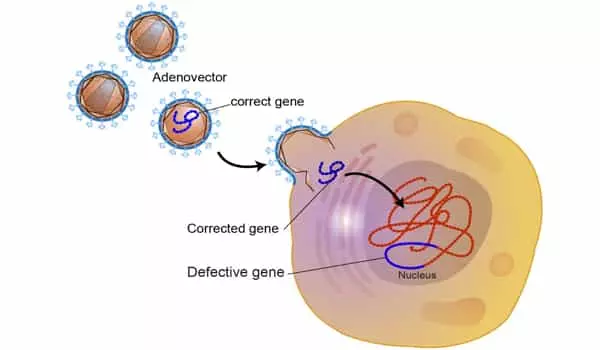Age is the most important risk factor for both cancer and dementia. The majority of dementia patients are over the age of 65. Approximately half of all cancer patients are over the age of 70. Every year, approximately 352,000 people in the United Kingdom are diagnosed with cancer, and approximately 850,000 people living with dementia.
Researchers from the University of Sheffield have discovered a new gene therapy pathway, which has revealed an important regulatory mechanism for maintaining the health of our genome. This pathway has the potential to protect us from life-threatening diseases like cancer and dementia.
Cancer and neurodegeneration are two major health issues currently affecting the population, and they are two sides of the same coin: one is caused by uncontrolled cell proliferation caused by genome damage, and the other is caused by excessive genome damage that causes cell death. This new pathway has an impact on both and opens up new therapeutic avenues to aid in the fight against the disease.
A newly identified gene therapy pathway has the potential to protect us against dementia and cancer, researchers report.
The study, published in Nature Communications, discovered that when cells in our bodies read DNA to build proteins, they frequently make mistakes that can damage our genome, resulting in diseases such as cancer and dementia.
The pathway involves three proteins, USP11, KEAP1, and SETX, which collaborate to repair DNA damage in order to keep our DNA healthy and our cells functioning properly. Understanding the role these proteins play in protecting cells from DNA damage will allow scientists to target these proteins and modify their behavior, promoting genome and cell health and disease prevention.
Scientists have discovered the benefits of three proteins working together as a team by studying how cells repair DNA damage to keep us healthy. USP11, KEAP1, and SETX are three proteins that receive instructions from their coach to direct their function in space and time with remarkable harmony in order to keep our DNA healthy.

Scientists are able to modify the behavior of these proteins to promote people’s health and well-being by understanding how cells protect themselves from these errors and thus preventing diseases.
The findings of this study will allow scientists to develop diagnostic tests and drugs that target one or more of the proteins in the pathway for the early detection and treatment of certain types of cancer and neurological disease. The development of new drugs to regulate the level of one or more of these proteins is expected to lead to new cancer and dementia treatments.
“The findings are significant and important because we are now at the stage where we could develop drugs to control this modification.” This would be useful in killing cells, which is what we do when treating elderly cancer patients. The other application would be to reduce the level of genome damage, which could be beneficial for other aging-related disorders such as dementia,” Professor Sherif El-Khamisy explained.
Dementia caused by cancer treatment develops gradually over time and usually after the treatment is finished. It may be more difficult to recognize than delirium, and it may not have a single identifiable cause. Dementia can appear as soon as three months after brain radiotherapy. Despite the name, it can occur in people undergoing other types of cancer treatment. Dementia patients are more likely to experience this side effect. Some of these issues are similar to those caused by dementia. Dementia symptoms may temporarily worsen in some people who are receiving treatment.
The research is being conducted at the University of Sheffield’s Healthy Lifespan Institute and the Neuroscience Institute. The Healthy Lifespan Institute brings together 140 world-class researchers from a variety of disciplines with the goal of slowing the aging process and addressing the global epidemic of multi-morbidity – the presence of two or more chronic conditions – in order to help everyone live healthier, more independent lives for longer while also lowering healthcare costs.
The Neuroscience Institute’s mission is to translate laboratory discoveries into groundbreaking treatments for patients suffering from neurodegenerative disorders.
















